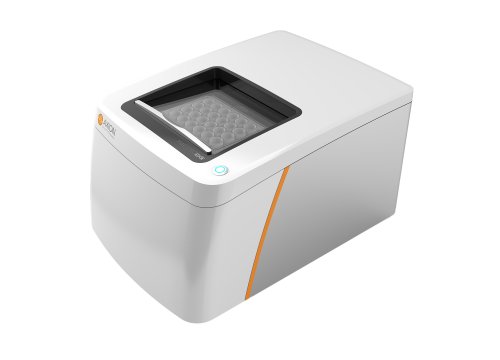Authors: David J. Lomboni, Alp Ozgun, Tayline V. de Medeiros, William Staines, Rafik Naccache,John Woulfe, and Fabio Variola
Advanced Healthcare Materials, 03 November 2023
A biomaterial-based strategy may lead to new approaches for neurological disease research and therapeutic development. In this study, scientists develop a novel composite with the inclusion of carbon nanodots (CNDs) to enhance the electrical conductivity of a collagen-based scaffold. Collagen is an FDA-approved polymer often used for bioengineering; however, it typically does not properly support the electroactive environment of neural tissue.
To evaluate electrical activity of neural progenitor spheroids developed in the CND scaffold, the team used Axion’s noninvasive Maestro microelectrode array (MEA) platform. Results demonstrated that spheroids in the CND nanocomposite exhibited increased single electrode and network activity in vitro, suggesting enhanced neural function and synaptic connectivity compared to spheroids in a non-CND-containing composite. Overall, “this work presents a novel electroconductive nanocomposite consisting of a collagen type I matrix decorated with [glycine-derived carbon nanodots] GlyCNDs, ultimately demonstrating its promising potential as a biomaterial for applications ranging from neural tissue engineering and neuroregenerative medicine to bioinks and matrices for 3D cultures and biomimetic in vitro models.”


